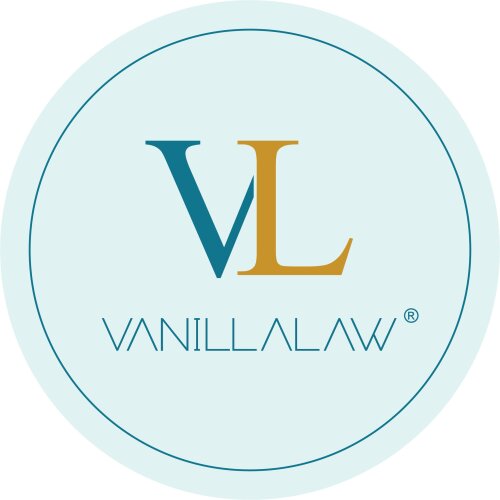Best Cyber Law, Data Privacy and Data Protection Lawyers in Singapore
Share your needs with us, get contacted by law firms.
Free. Takes 2 min.
Or refine your search by selecting a city:
List of the best lawyers in Singapore
Singapore Cyber Law, Data Privacy and Data Protection Legal Articles
Browse our 1 legal article about Cyber Law, Data Privacy and Data Protection in Singapore written by expert lawyers.
- Personal Data Protection Act (PDPA): Introduction to PDPA
- In recent years, the Personal Data Protection Act 2012 (“PDPA”) of Singapore has been a trending topic for discussion, especially due to the trend of storing valuable personal data online. The PDPA is crucial as it protects the personal data for individuals while recognising the need for organisations to “collect,... Read more →
About Cyber Law, Data Privacy and Data Protection Law in Singapore
Singapore is recognized for its robust legal framework concerning Cyber Law, Data Privacy, and Data Protection. The country has implemented comprehensive legislation, such as the Cybersecurity Act and the Personal Data Protection Act (PDPA), designed to manage cyber threats and protect personal data. This framework is aligned with international standards and aims to maintain the nation’s standing as a trusted digital hub. These laws are continually updated to adapt to evolving technological advancements and cyber threats.
Why You May Need a Lawyer
There are numerous situations where legal advice might be necessary within the realm of Cyber Law, Data Privacy, and Data Protection in Singapore. Individuals and businesses might face challenges such as data breaches, unauthorized data usage, and compliance issues with the PDPA. Companies might also need legal guidance to develop data protection policies, handle cross-border data transfers, or resolve disputes arising from cyber incidents. Additionally, victims of cybercrimes like hacking and phishing may require legal support to pursue justice and claim compensation.
Local Laws Overview
Singapore's legal landscape regarding Cyber Law, Data Privacy, and Data Protection is primarily governed by the Cybersecurity Act and the Personal Data Protection Act (PDPA). The Cybersecurity Act focuses on safeguarding critical information infrastructures, enhancing cybersecurity capabilities, and promoting the sharing of cybersecurity information. On the other hand, the PDPA establishes the responsibilities of organizations in handling personal data and outlines individuals' rights regarding their data. Compliance with these laws is crucial, with significant penalties imposed for breaches.
Frequently Asked Questions
What is considered personal data under the PDPA?
Personal data refers to data that can identify an individual, whether true or not, and includes both electronic and non-electronic forms. Examples include names, addresses, identification numbers, and more.
What are the penalties for non-compliance with the PDPA?
Organizations that fail to comply with the PDPA can face financial penalties up to SGD 1 million or 10% of their annual turnover, whichever is higher. Additional penalties can include potential jail terms for serious breaches.
What steps should companies take to comply with the PDPA?
Companies should appoint a Data Protection Officer, develop a data protection policy, conduct regular data protection training, and implement processes for handling data access and correction requests, among other measures.
Are there any exemptions to the PDPA?
Certain organizations, such as public agencies and those acting on their behalf, are exempt from parts of the PDPA. Other exemptions apply to business contact information used for business purposes and certain evaluative purposes.
What is the role of the Cyber Security Agency (CSA) in Singapore?
The CSA is responsible for overseeing national cybersecurity efforts, working to secure critical information infrastructure, and raising awareness among businesses and individuals about cyber threats and measures.
How can individuals protect their personal data online?
Individuals can protect their data by using strong passwords, being cautious about sharing personal data, using secure websites, and regularly updating privacy settings and software.
How does Singapore regulate cross-border data transfers?
Organizations must ensure that the overseas recipient of the data is bound by legally enforceable obligations to provide the data a standard of protection comparable to that of the PDPA before transferring personal data out of Singapore.
What constitutes a data breach under the PDPA?
A data breach occurs when there is an unauthorized access, collection, use, disclosure, copying, modification, or disposal of personal data, or a loss of any storage medium or device on which personal data is stored.
Is consent always required for collecting personal data?
Generally, consent is required before collecting, using, or disclosing personal data. However, there are exceptions, such as when it's necessary for any legal or business purposes, or when it's clearly in the individual’s interest.
What should you do if you suspect you are a victim of a cybercrime?
If you suspect cybercrime, report the incident to the police as soon as possible and change any compromised passwords. You may also wish to seek legal advice to understand your rights and remedies.
Additional Resources
For those seeking further information, consider reaching out to the Personal Data Protection Commission (PDPC) for guidance on compliance with the PDPA, or the Cyber Security Agency of Singapore (CSA) for insights on cybersecurity best practices. Additionally, consulting with professional organizations like the Law Society of Singapore can provide referrals to specialized legal practitioners.
Next Steps
If you require legal assistance in Cyber Law, Data Privacy, or Data Protection, start by identifying a legal firm or lawyer with expertise in these areas. Consult the Law Society of Singapore’s directory for recommendations. Prepare any documents related to your case and outline your concerns clearly when seeking consultation. Ensure to discuss potential legal fees and service expectations upfront with any lawyer or firm you engage with to avoid misunderstandings.
Lawzana helps you find the best lawyers and law firms in Singapore through a curated and pre-screened list of qualified legal professionals. Our platform offers rankings and detailed profiles of attorneys and law firms, allowing you to compare based on practice areas, including Cyber Law, Data Privacy and Data Protection, experience, and client feedback.
Each profile includes a description of the firm's areas of practice, client reviews, team members and partners, year of establishment, spoken languages, office locations, contact information, social media presence, and any published articles or resources. Most firms on our platform speak English and are experienced in both local and international legal matters.
Get a quote from top-rated law firms in Singapore — quickly, securely, and without unnecessary hassle.
Disclaimer:
The information provided on this page is for general informational purposes only and does not constitute legal advice. While we strive to ensure the accuracy and relevance of the content, legal information may change over time, and interpretations of the law can vary. You should always consult with a qualified legal professional for advice specific to your situation.
We disclaim all liability for actions taken or not taken based on the content of this page. If you believe any information is incorrect or outdated, please contact us, and we will review and update it where appropriate.
Browse cyber law, data privacy and data protection law firms by city in Singapore
Refine your search by selecting a city.















